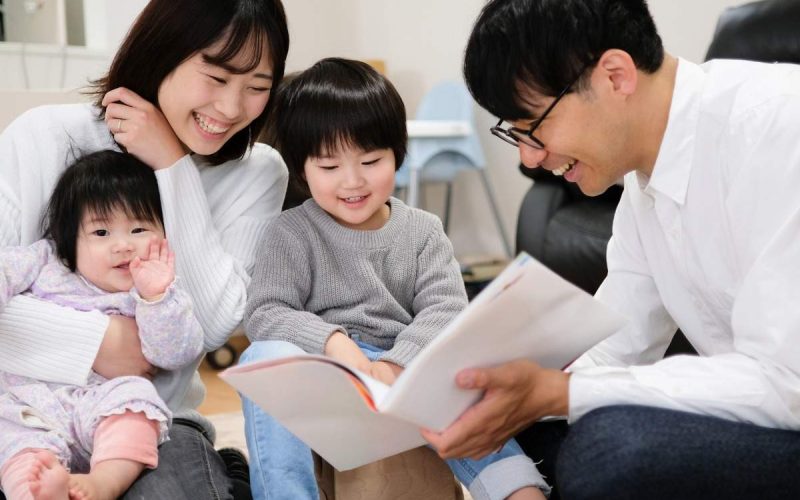Babies are beautiful, and parenting is all fun and games. Right? Wrong! Everyone agrees that raising a baby to the point where they can responsibly live independently as an adult is no mean feat. The parenting journey is dynamic and challenging.
Different parenting styles exist based on culture and individual preferences; some work wonders, others do fairly well, while others fail terribly.
For instance, what American parents would consider discipline, some Japanese parents call child abuse.
So, where do we draw the line between good and bad parenting, if the latter exists at all? After analyzing Japanese parenting, here are invaluable nuggets that will make a huge difference in your approach to parenting.
5 Pillars of The Japanese Parenting Culture
A Japanese child learns proper behavior from a tender age so that by age five, they know how to behave in private and public.
However, this doesn’t happen automatically or with a hands-off parenting style. Japanese parents actively raise their kids to become responsible members of society.
Below are the five main pillars of the Japanese parenting style.
Mother-Child Relationship
In any family, the female parent is naturally a nurturer, and the Japanese mother understands this far too well.
During the initial child-rearing stages, the relationships between mothers and children play key roles in behavior formation.
The mother strives to develop a strong bond with the baby from infancy to adulthood.
By the time the child becomes a teenager, they love their mom so much that they don’t want to go against them, hence the cooperative attitude among most Japanese teenagers.
Parents as Role Models
Have you heard that ‘children do what you do and not what you say?’ The Japanese style of parenting is based on this fact.
Parents model the behavior they would love to see in their kids. Leading by example is one of the most effective ways of raising kids since they don’t feel you’re asking them to do what you can’t do.
For example, most parents struggle to apologize to their children once they realize their mistakes.
This is not so with Japanese parents, who quickly apologize, rectify their behavior, and show their children how things should be done.
It takes a lot of courage and humility for a parent to admit they’re not always right, but it pays off handsomely.
Parents Pay Attention
Kids will always be kids until they grow up. Tantrum-throwing is common, but it’s also rare to see a Japanese child causing a scene in public.
Japanese parents pay extra attention to their children’s emotions and do not disregard their feelings.
When a child needs to be heard, the parent listens and allows the young one to unwind as much as they need.
Caregivers help young people process their emotions effectively and develop positive attitudes as they interact with the rest of society.
Family Comes First
Parenting rules aren’t cast in stone, but Japanese families take some of these rules with extra seriousness.
A Japanese mother will easily raise their kids without a nanny’s or relative’s help because they believe it’s the best way to do it.
The young ones enjoy their mothers’ presence from birth through their toddler and teenage years until they are ushered into adulthood.
While caregiving isn’t a straight jacket, and what works for one family may not necessarily work for the other, building strong family foundations is key to raising confident and disciplined kids.
Home should be a safe space where every family member feels and enjoys warmth, security, and a deep sense of belonging.
Communal Parenting
The Japanese parenting culture allows communal parenting, in which a child belongs to the Japanese society. The extended family and the entire community care for every kid.
For example, if you need someone to take care of your young one while you run some errands, a member of the extended family or society can gladly do so.
Also, if your child misbehaves during this period, their caregiver can administer appropriate discipline on your behalf. The advantage is that all kids are cared for regardless of their background.
This parenting style isn’t popular in most places, and most Western parents would never agree.
How About Discipline?
Japanese parents believe in a conversational disciplining system in which they help their children distinguish good from evil and make the right choices from a tender age.
Parents follow the following guidelines to less chaotically and effectively discipline their kids:
Separating the Child From the Wrong
Often, caregivers are guilty of treating the kid and their wild behavior as a single entity. However, that shouldn’t be the case because your child isn’t what they do but rather a separate entity capable of doing right.
A Japanese parent will point out a mistake and discuss it with their young one, directing them to avoid repeating it. All this while, the parent-child relationship remains intact and untainted.
Private Discipline
Japanese children aren’t perfect, and their parents aren’t detached, but they handle indiscipline differently than most adults.
The Japanese culture of parenting exalts private discipline over public scolding. Right from home, kids are religiously taught how to behave and the rewards and consequences of each choice.
If a child misbehaves in public, the parent finds a private place to administer appropriate discipline through conversations or any other form of engagement.
This method preserves the kid’s confidence by saving them the embarrassment and pressure caused by public punishments. Also, the child understands that they need to respect others and not cause chaos in public.
Authoritative Parenting in Play
Parents in Japanese society practice the authoritative parenting style; parents guide, encourage, and expect their young ones to live by certain moral standards.
This is opposed to permissive parenting, where kids do as they wish, and authoritarian parenting, where the caregiver’s word is final.
Authoritative parents gradually and firmly instill discipline into their children through teachings, training, and role modeling.
Most Japanese toddlers portray an uncommon sense of calmness that leaves non-Japanese parents wondering what they do wrong. However, no parent should feel like a failure as long as they do their best.
Emphasis on Social Harmony
A Japanese child is taught to co-exist in a community peacefully, and one way to do this is by ensuring social harmony.
Parents help their young ones learn how to process their negative emotions and deal with their issues in a manner that doesn’t disrupt societal peace.
Instead of being rude or brutally honest to others, Japanese children act polite and kind for peace.
This parenting style helps kids develop empathy and concern for others’ feelings. However, if it is not well-balanced, it may lead to suppression, where children bottle up negative emotions for the sake of peace.
That’s why most Japanese parents emphasize the need for open family interactions, where children can learn to release their feelings without harming others.
Bottom Line
Parenting is a complex journey full of highs and lows. Although every parent wants the best for their children, some still make mistakes that greatly cost them.
Since no one is perfect, learning a thing from others about better parenting doesn’t harm. Feel free to borrow a leaf if you’re impressed with the Japanese parenting style or are curious to see if it works for you.







